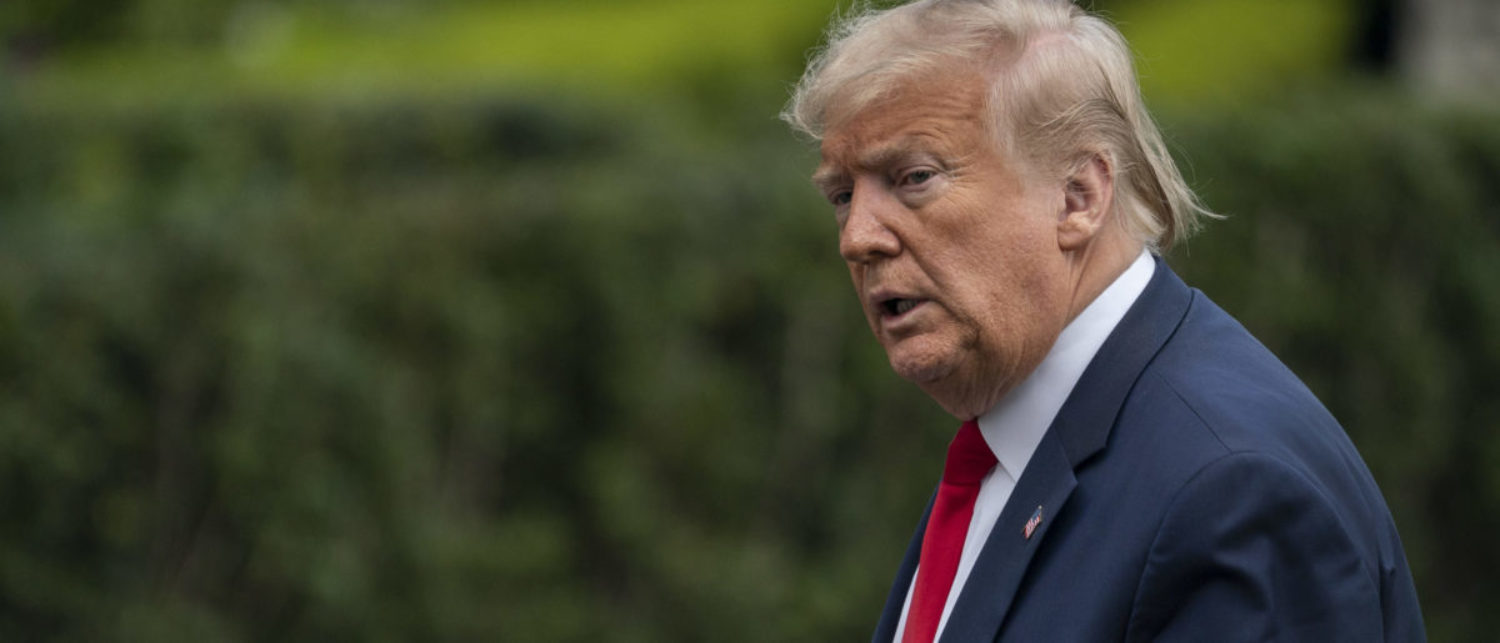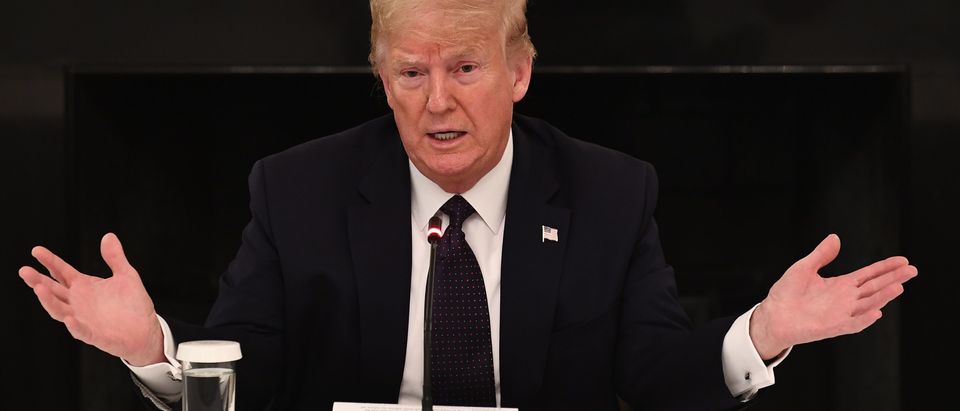“Our gradual reopening plans are moving along and they’re moving along very rapidly,” Trump said. “The governors are making their decisions, and want to make their decisions, and that’s the way I want it to, and we will step in if we see something going wrong, or if we disagree, and some people say that’s nice, and some people say I shouldn’t be doing that, but we’re going to do it if we see something wrong.”
The president did not specify what would prompt his administration to intervene, but has said before that he has the authority to supersede governors and reopen the country. Dozens of states have begun reopening their economies amid the coronavirus pandemic. (RELATED: FLASHBACK: Jan.21: Fauci Says Coronavirus ‘Not A Major Threat’ To U.S.)
“If you have any problem, let me know please, but it seems that the governors are largely happy. And I think I can say extraordinarily happy with respect to what we’ve done,” Trump reportedly told the governors.

U.S. President Donald Trump walks to the White House residence after exiting Marine One on the South Lawn of the White House on May 14, 2020 in Washington, D.C. (Photo by Drew Angerer/Getty Images)
The Trump administration has previously stepped into cases involving alleged abuses of power by state and local officials who have implemented strict coronavirus restrictions. The Department of Justice became involved in a religious freedom case early in May. A Virginia church claimed the state had infringed on its First Amendment rights by banning religious gatherings of more than 10 people. (RELATED: Eight Ways America Is Becoming More Like China)
Attorney General Bill Barr sent a memo to U.S. attorneys late in April ordering them to be on the “lookout” for unconstitutional restrictions.
“As the Department of Justice explained recently in guidance to states and localities taking steps to battle the pandemic, even in times of emergency, when reasonable and temporary restrictions are placed on rights, the First Amendment and federal statutory law prohibit discrimination against religious institutions and religious believers,” Barr wrote.


